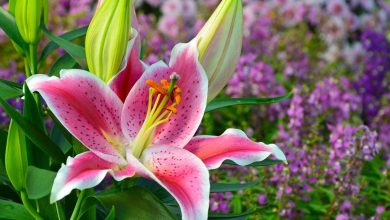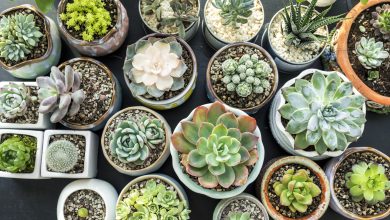Fertilize an Olive Tree: What Components Do You Need? How to do it?
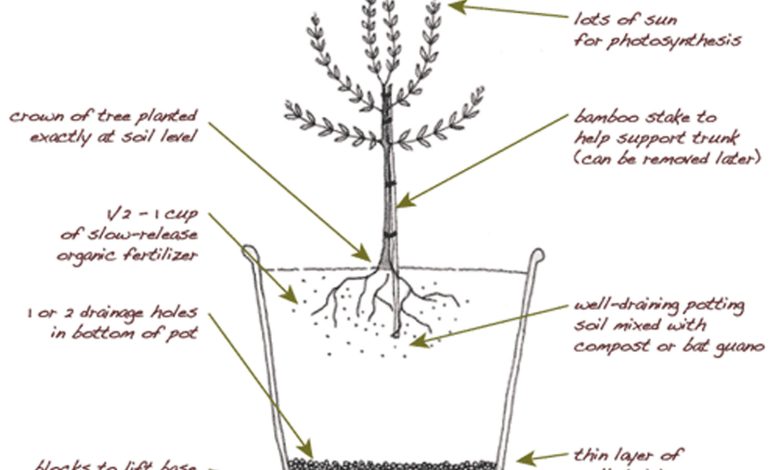
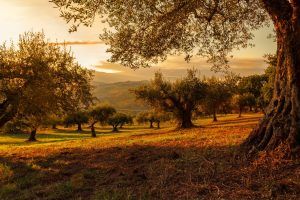 The olive tree is a fruit tree that allows olive oil to be produced and is not difficult to grow, although it is important to know how to fertilize it.
The olive tree is a fruit tree that allows olive oil to be produced and is not difficult to grow, although it is important to know how to fertilize it.
Although this tree does not grow too large, it usually tolerates varied climatic conditions, with the wind being the one that can cause the most damage.
In this sense and in order to let you know how to take care of this tree, we will talk a little about its fertilizer and the correct way to use it.
Why fertilize an olive tree?
The olive tree is a tree that is not demanding with the soil, giving good results both in irrigated and dry land.
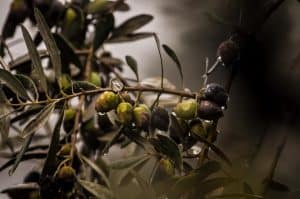 It adapts to different types of soils, however it needs a good amount of water. It is important not to forget that like all trees, stagnant water is very detrimental. Although it is considered a somewhat hardy crop.
It adapts to different types of soils, however it needs a good amount of water. It is important not to forget that like all trees, stagnant water is very detrimental. Although it is considered a somewhat hardy crop.
Since this plant has a good amount of nutritional requirements, paying it becomes mandatory for your health.
This also has a great influence on the reproduction of the olive tree, since fruits of greater or lesser quality will be produced depending on the care provided.
It is important to consider that it cannot be fertilized with any type of material, since the nutrients it needs are specially defined.
That is why you must be careful and protect yourself from any deficit that may arise.
To know more: Pests and Diseases of the Olive Tree
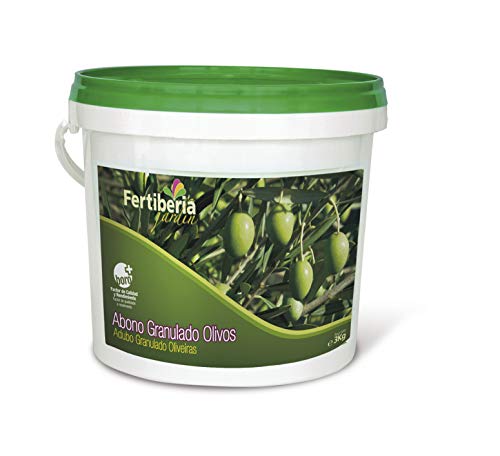
What does the olive tree need in terms of nutrients?
In general, this tree requires the presence of nitrogen, phosphorous, boron, iron and calcium.
All of them ensure that it can have an optimal and adequate development for its production.
| planting density | Average production per tree | Unit (fert/ha) | Subscriber (kg/ha) |
| 150 trees/ha rainfed | 15 to 30kg | N90 – P2O5 30 – K2O 90 |
|
| 150 trees/ha rainfed | 30 to 40kg | N120 – P2O5 45 – K2O 120 |
|
| 200 trees/ha rainfed | 40 to 50kg | N180 – P2O5 80 – K2O 200 |
|
nitrogen
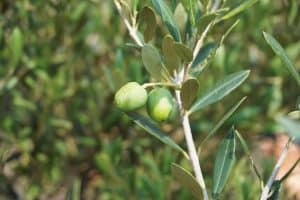 In the case of nitrogen, it is known that it allows the acceleration of vegetative activity, which promotes the correct development of the plant.
In the case of nitrogen, it is known that it allows the acceleration of vegetative activity, which promotes the correct development of the plant.
Likewise, it facilitates that it has a greater capacity to assimilate any other element, directly influencing its production.
This compound is not very stable in the soil, making it necessary to keep it in mind when fertilizing plants.
Nitrogen is a fundamental nutrient for olive cultivation due to its effect on vegetation and olive production. The olive tree usually acquires nitrogen through its absorption in the soil, either in mineral or organic form.
Nitrogen also accelerates vegetative life and plant development, increases chlorophyll, and intensifies the green color of leaves. It also helps assimilate other important elements.
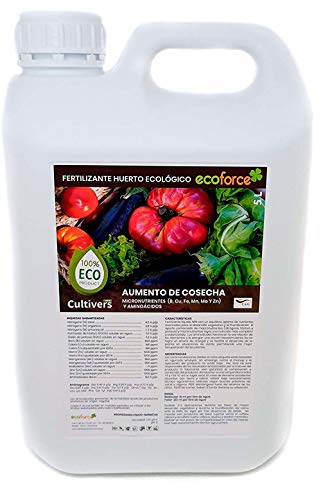
The match
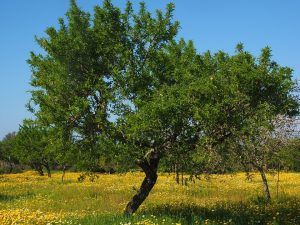 With regard to phosphorus, it can be said that it favors the acceleration of maturation, flowering and fruit set.
With regard to phosphorus, it can be said that it favors the acceleration of maturation, flowering and fruit set.
The main advantage after its use is that it allows the conditions to be improved so that each of these processes is carried out.
However, it should be kept in mind that the response to this compound begins in the plant one year after fertilization.
boron
Boron is what is known as an olive tree micronutrient, although it is of great importance for the development of the tree and its fruits.
It is essential to know how to properly fertilize olive trees, since problems can arise with the lack of boron in limestone and dry soils.
The consequences of the lack of this micronutrient are problems in flowering and fruit set, as well as an increase in the number of deformed fruits.
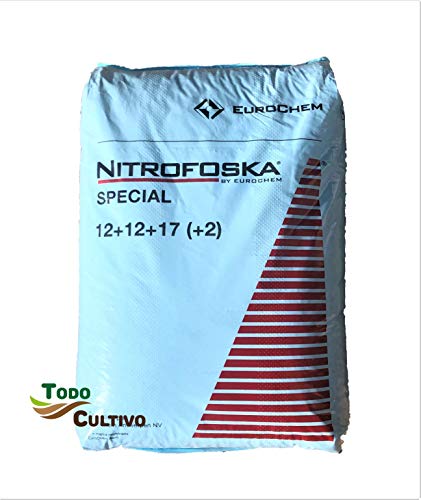
The iron
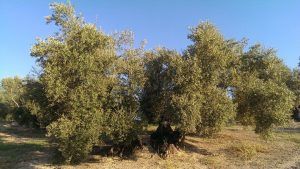 As for iron, its absence can cause problems of iron chlorosis, preventing the health of the plant from being suitable for its production.
As for iron, its absence can cause problems of iron chlorosis, preventing the health of the plant from being suitable for its production.
magnesium
One of the most important microelements in olive manure is magnesium. We can detect its lack by seeing the sickly and/or stunted tree.
This deficiency can be corrected by applying magnesium sulfate.
The calcium
Last but not least, there is calcium, an element that is usually generated by the limestone soils where the olive trees settle.
However, it should be considered that although this component is found in the soil, it does not always reach the plant as it should.
For this reason, it is recommended that the fertilizer has the presence of calcium in an adequate amount.
What are the main components of the fertilizer for the olive tree?
The main components of manure are nitrogen, phosphorous and potassium.
In addition, the needs of the plant to add micronutrients must be taken into account.
These needs will remain defined by the shortcomings you may have.
What deficiencies can the olive tree have and how to detect them?
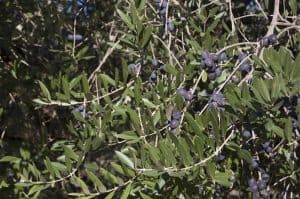 There are many shortcomings that an olive tree can have, all with a series of characteristics that allow them to be detected and treated in time.
There are many shortcomings that an olive tree can have, all with a series of characteristics that allow them to be detected and treated in time.
To be able to know some of these deficiencies it is essential to pay attention to the details.
Nitrogen deficiency
For example, a nitrogen deficiency (which is common) occurs with plant development problems, causing it to have rickets.
Similarly, the leaves are small and deformed, with the possible appearance of red spots, mostly on old leaves.
phosphorus deficiency
Other deficiencies such as those of phosphorus can create developmental damage, although not as marked as in the case of nitrogen.
How to make a compound fertilizer for olive trees step by step?
 In general, for the health of olive trees, the use of prefabricated organic fertilizer is recommended, allowing good nutrition.
In general, for the health of olive trees, the use of prefabricated organic fertilizer is recommended, allowing good nutrition.
This is because the necessary components are not freely available.
It should be borne in mind that the correct proportion of nutrients will make the olive trees much healthier and will improve their production.
It is also necessary to add that manure and industrialized fertilizers are usually very fickle and cause the quality of the crop to be lost.
Some natural components that greatly favor the fertilization of olive trees:
- Fallen leaves from other trees.
- Ash from burning remains (non-chemical materials, but natural).
- organic matter such as bird manure, as well as horse, donkey, etc. (although it must be very decomposed).
Olive trees are trees that need good conditions in order to maintain optimal and abundant production.
Therefore, its care is essential from the moment the land is selected until it begins to bear fruit.
And as it is the natural condition of all plants, knowing how to fertilize olive trees effectively and efficiently according to the stage of development in which they are found.
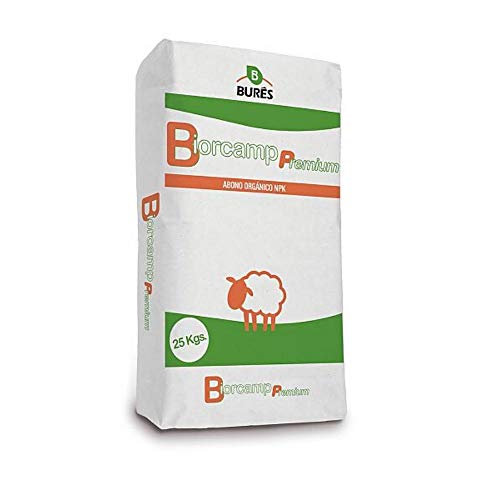
Where to buy fertilizer for olive trees?
It is best to go to a nursery or a specialized store in your area. However, if you don’t have access to either, we might recommend these products on Amazon:
 ECOM Garden Ecological Biostimulant Fertilizer. 1 Liter Concentrate. Natural invigorating for indoor and outdoor plants. Yields up to 33 liters diluted.
ECOM Garden Ecological Biostimulant Fertilizer. 1 Liter Concentrate. Natural invigorating for indoor and outdoor plants. Yields up to 33 liters diluted.
- Biostimulant and protective fertilizer, 100% natural. Bottle of 1 Liter Concentrate; its cost is 0.6 euros per liter of…
- Ecological. Made exclusively with aromatic plants. Non-toxic to people or pets
- Gives vigor and color to your garden and orchard plants. Very pleasant smell. 1 Liter Concentrate. Foliar application,…
- Protects and cures fungus and insect pests. Very effective against red spider mite, aphids, worms and cochineals. Fight the…
View on Amazon Prices with VAT without transport
Last updated on 2022-07-28 / Affiliate Links / Affiliate API Images
 FERTIBERIA Granulated fertilizer 3Kg for olive trees
FERTIBERIA Granulated fertilizer 3Kg for olive trees
- Granulated fertilizer formulated for the nutrition of olive trees, as well as holm oaks, oaks, palm trees and almond trees, among others.
- It improves the fructification, quantity and quality of the olive, providing great vigor and resistance against cold, drought,…
View on Amazon Prices with VAT without transport
Last updated on 2022-07-27 / Affiliate Links / Affiliate API Images
 CULIVERS Special Fertilizer for Bonsai of 5 kg. Fertilizer of 100% Organic and Natural Origin, Granulated Slow Release and controlled with NPK 8-1-5 + 74% MO and Ac. Humic
CULIVERS Special Fertilizer for Bonsai of 5 kg. Fertilizer of 100% Organic and Natural Origin, Granulated Slow Release and controlled with NPK 8-1-5 + 74% MO and Ac. Humic
- Fertilizer in the form of slow and controlled release microgranules.
- Controlled growth of new internodes
- Ecological organic fertilizer with a high concentration of NPK.
- Organic fertilizer from high-quality plant material, obtained through controlled fermentation, for a…
€19.84 View on Amazon Prices with VAT without transport
Last updated on 2022-07-26 / Affiliate Links / Affiliate API Images
 Expert Advice Citrus Organico Organomineral fertilizer specific for citrus, 5 kg
Expert Advice Citrus Organico Organomineral fertilizer specific for citrus, 5 kg
- Npk 6-5-5 contains a high percentage of natural organic substances such as corknut, hops and neem panel.
- The neem panel is a substance of vegetable origin that restores the fertility of the exploited territories and favors…
- Distributed regularly throughout the year, it guarantees complete nutrition and optimal plant development.
- Fertilization period: from March to November; Frequency: every 30-40 days; How to use: shoot, lightly bury and…
View on Amazon Prices with VAT without transport
Last updated on 2022-07-26 / Affiliate Links / Affiliate API Images
 Suinga 500 KG ORGANIC FERTILIZER FERTILIZER Humus OF WORMS, Bags of 25 Kg – 41 liters. Suitable for organic farming
Suinga 500 KG ORGANIC FERTILIZER FERTILIZER Humus OF WORMS, Bags of 25 Kg – 41 liters. Suitable for organic farming
- Organic fertilizer suitable for Organic Farming obtained from earthworm droppings.
- They help the growth and development of all kinds of plants, improving the soil and caring for the environment.
- The earthworm humus is a product of organic origin that results from the transformation of animal manure carried out…
- It serves as a substrate for seedbeds (we recommend mixing with coconut fiber)
View on Amazon Prices with VAT without transport
Last updated on 2022-07-26 / Affiliate Links / Affiliate API Images

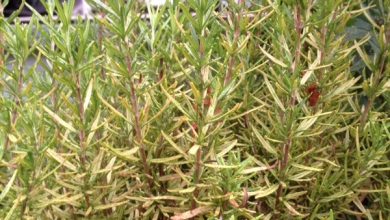
![Photo of Neem Oil: [20 Reasons to Use It in Your Garden and How to Do It]](https://www.complete-gardening.com/wp-content/uploads/2022/08/neem-oil-20-reasons-to-use-it-in-your-garden-and-how-to-do-it-390x220.jpg)
